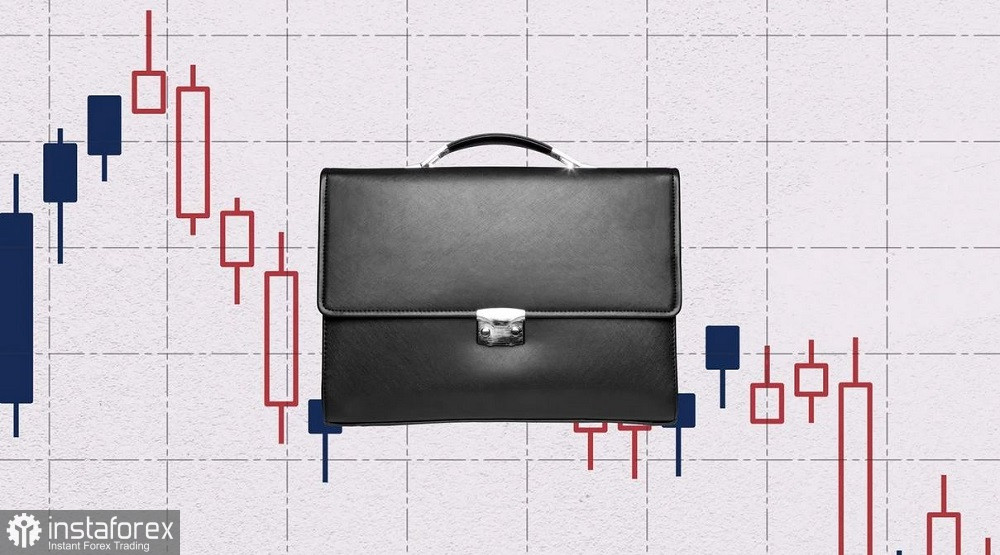On Thursday, the AUD/USD pair surged and tested the 0.66 level. After a drawn out decline, the pair has been rising for the second consecutive day. The price increase is mainly due to the greenback's weakness, which reacted negatively to the outcomes of the March FOMC meeting. However, the Australian dollar also helped, as it received significant support amid unexpectedly strong labor market data from Australia. Almost all components of the report came out in the green, easing concerns about the Reserve Bank of Australia considering a future interest rate cut.

I'd like to remind you that following the RBA's March meeting, the central bank excluded an important (one might say key) phrase from the accompanying statement – regarding a possible rate hike. Back in February, the phrase ("further tightening in monetary policy may be required") was present, but in March, the Bank decided to remove it from the final communique. Thus, the RBA unequivocally indicated that the next step in adjusting the interest rate would be a decrease. The question remains as to when exactly the central bank will decide to take the first step in this direction.
In the final press conference, RBA Governor Michelle Bullock hinted that the central bank would not consider easing monetary policy until inflation shows a confident decline and the labor market stops overheating. And while inflation indicators in Australia are somewhat decreasing, the labor market, judging by the latest report, shows no signs of cooling down.
It's worth noting that last month, the "Australian Nonfarm Payrolls" data disappointed AUD/USD buyers. Australia's unemployment rate reached a 2-year high, and has risen to 4.1% (the highest level since January 2022). Employment rose by just 500 persons over the month, below a forecast of 26,000. Many experts speculated that the labor market had stopped overheating, and this fact (along with the slowdown in inflation) brings the date of the RBA's first rate cut closer.
Thursday's report contradicted all these assumptions, as the latest release turned out to be surprisingly strong and, so to speak, "promising."
For instance, Australia's jobless rate dived to 3.7% in February (against an expected increase to 4.2%) – the lowest level since September 2023.
It is also necessary to take note of the positive dynamics of the employment figures. Quite strong dynamics, in fact. The indicator turned out to be much better than forecasts, reaching 116,500 (against an expected increase of only 39,000). Moreover, the structure of this indicator suggests that the growth was primarily driven by full-time employment, while the part-time employment component demonstrated relatively weak growth (the ratio being 78,200/38,300). Full-time positions typically offer higher wages and a higher level of social security compared to temporary jobs. Therefore, the current trend is quite positive. The share of the economically active population also increased – up to 66.7%.
So what does the report say? First and foremost, it is necessary to note that the February figures will not bring back the phrase suggesting that the RBA may further tighten monetary policy. Hypothetically, such a scenario cannot be ruled out (in the future), but only if, in addition to the labor market overheating, inflation starts to accelerate. At the moment, there are no prerequisites for this.
Nevertheless, the latest report will not go unnoticed. Not at all. Most likely, it will weaken the market's dovish expectations and "push back" the likely date of the first interest rate cut. Take note that after the January data, the majority of experts surveyed by Bloomberg said that the Australian central bank would likely begin easing monetary policy, possibly in the third quarter of this year, i.e., in August or September. Following the previous survey, most respondents pointed to the fourth quarter as the most likely target. We can assume that now the market will push back the presumed date to the fourth quarter (i.e., November or December).
Buyers of AUD/USD received significant support on Thursday; however, in the future, the aussie will only be guided by the behavior of the US dollar. The fact is that in the context of the near-term outlook, the latest report did not change anything: prior to the release of the February data, the market was already confident that the RBA would keep rates at their current level in the coming months. Changing the likely rate cut date from Q3 to Q4 is certainly a hawkish signal, but it is not capable of lifting the aussie for an extended period.
In other words, the market will quickly digest the latest report and switch focus to the behavior of the US dollar index.
Therefore, you should be cautious with long positions on the AUD/USD pair. On the daily chart, the price is within the Kumo cloud, between the Tenkan-sen and Kijun-sen lines, and on the 4-hour chart, the price failed to stay above the resistance level of 0.6620. Therefore, you should only consider long positions after buyers settle above this target. In that case, the next target for the bullish movement will be the 0.6680 level – the upper boundary of the Kumo cloud on both the daily and weekly charts simultaneously.
 English
English 
 Русский
Русский Bahasa Indonesia
Bahasa Indonesia Bahasa Malay
Bahasa Malay ไทย
ไทย Español
Español Deutsch
Deutsch Български
Български Français
Français Tiếng Việt
Tiếng Việt 中文
中文 বাংলা
বাংলা हिन्दी
हिन्दी Čeština
Čeština Українська
Українська Română
Română

